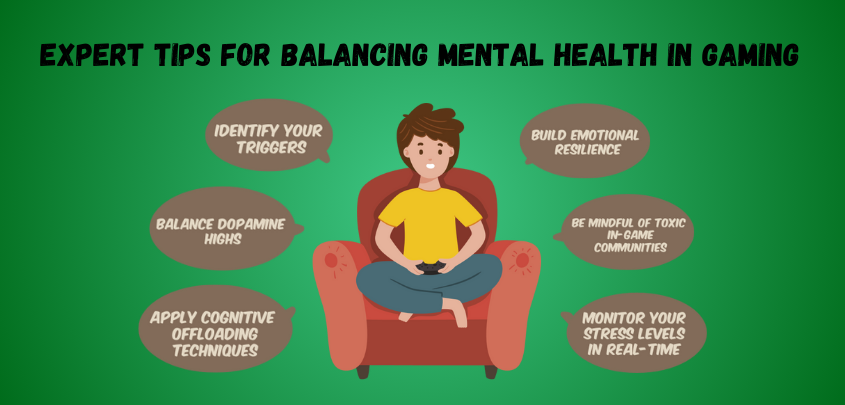
13, Sep, 2024
Gaming and Mental Health: Expert Tips for Managing Stress and Emotional Well-being
For gamers, managing mental health requires more than just taking breaks. Here are effective strategies for maintaining emotional balance while gaming:
- Identify Your Triggers
- Not all games affect players the same way. Evaluate which types of games (competitive, violent, or immersive) tend to elevate your stress levels. Once identified, either reduce your exposure or approach them with strategies in place to manage potential frustration.
- Emotional Resilience Through Gaming
- Use gaming as a tool to build emotional resilience. When faced with in-game setbacks, practice reframing your mindset by focusing on the learning experience rather than the loss. This not only improves gameplay but also strengthens mental flexibility.
- Balance Dopamine Highs
- Gaming stimulates dopamine release, which can create an addictive loop. Counteract this by balancing it with other activities that provide long-term satisfaction (e.g., creative hobbies or fitness) to avoid becoming dependent on gaming for emotional regulation.
- Healthy In-Game Social Dynamics
- Be mindful of toxic in-game communities. Actively seek out positive, supportive environments where teamwork and collaboration are prioritized. Engaging with healthier gaming circles can elevate your experience and mental health.
- Cognitive Offloading for Performance
- During intense gaming sessions, apply cognitive offloading techniques such as journaling in-between games or using mental prompts to release emotional buildup, allowing better in-game focus without emotional overload.
- Self-Regulation Through Biofeedback
- Consider integrating biofeedback tools while gaming to monitor your stress levels in real-time. Heart rate monitors or apps that track physiological responses can help you self-regulate before stress spirals into emotional fatigue.
- Incorporate Gamified Mindfulness
- Engage in mindfulness practices that are built into gameplay. Games designed for mental well-being, such as Headspace or Journey, combine relaxation with interactive environments, helping to manage stress without losing the gaming experience.
By going beyond basic strategies, these effective approaches help gamers maintain mental health while enhancing their gameplay experience.
